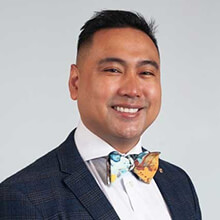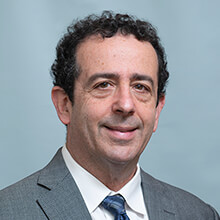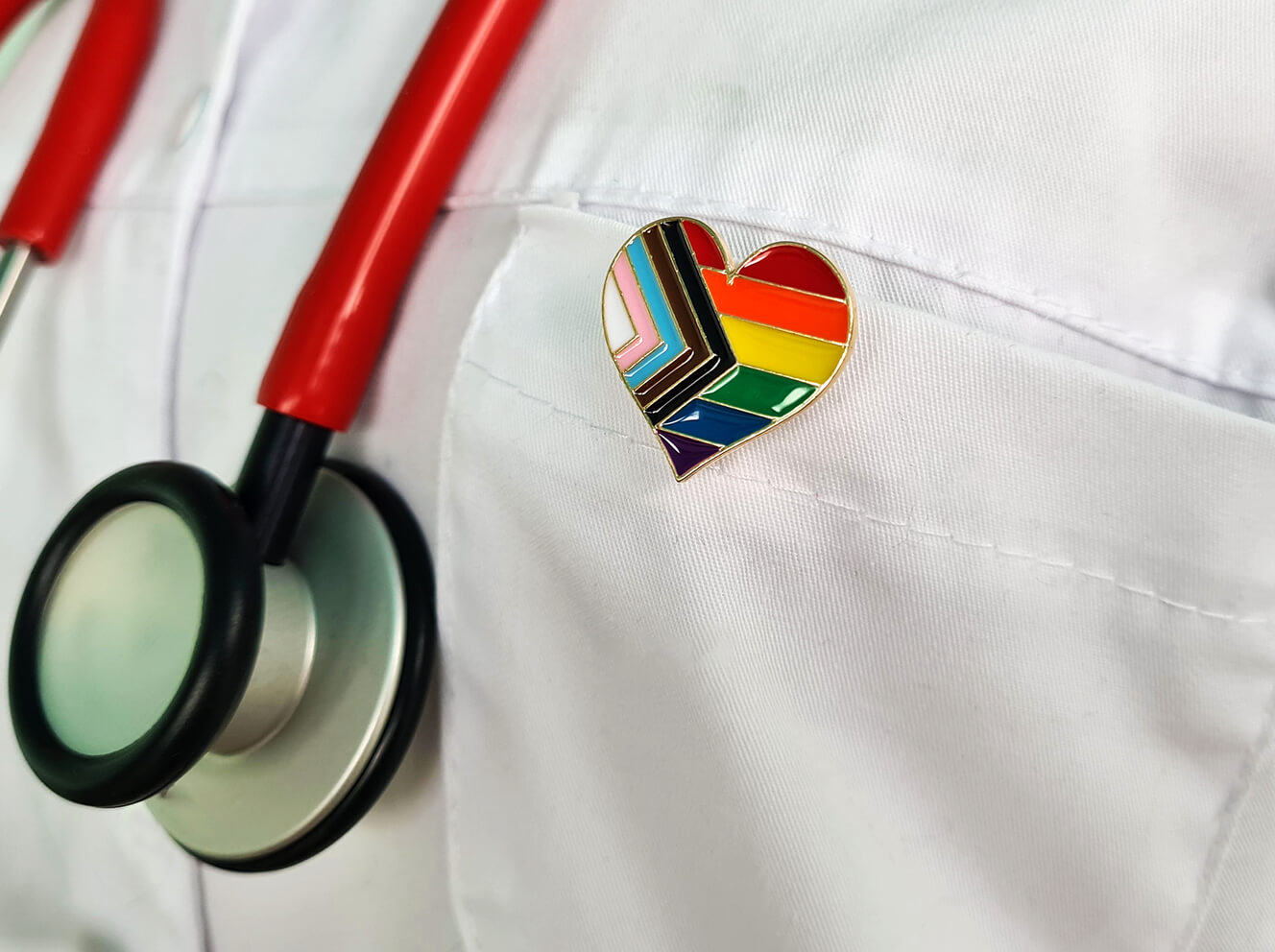For John Christopher Trinidad, MD, MPH, FAAD, practicing dermatology has meant finding joy in his work, finding a community he can call home.
From founding an HIV Dermatology Clinic as assistant professor at Ohio State University, to treating incarcerated patients in Ohio and homeless patients in Boston, to serving as a political advocate for underserved populations, Dr. Trinidad has found his life’s mission in working to make necessary dermatologic care accessible and equitable. “He is marching to his own drummer,” says David Fisher, MD, PhD, Chair of the Department of Dermatology at Massachusetts General Hospital. “There are very few dermatologists who are truly focused on equity and serving populations in need, and Dr. Trinidad is at the center of this work. He is a miracle, a gem.”
A Lifelong Advocate
A son of Filipino immigrants living in the San Francisco Bay Area, Dr. Trinidad began to openly identify as gay when he was 15 years old. As a teenager, he began advocating for those in need in his community, and started volunteering with various health advocacy groups during high school.
He went on to study medicine at The University of California, San Francisco, where his love of dermatology stemmed from his observation of a physician treating a patient who was suffering from painful skin cancer caused by untreated HIV. As she cared for the patient, the physician helped him understand and accept the necessary treatment for his HIV. Through that experience, Dr. Trinidad began to learn how important compassionate dermatologic care is in so many different areas of medicine, from infectious disease, to palliative care to gender affirming care.

A Trajectory of Firsts
Throughout his career, Dr. Trinidad has often been a pioneer in his field. “When I was a faculty member at OSU, I was the only dermatologist within 100 miles registered with the Gay and Lesbian Medical Association,” he explains. “I was the only dermatologist in the city who would openly state that this was a population I wanted to serve.”
Experiences like this motivated Dr. Trinidad to provide a safe, non-judgmental practice at the Mass General Charlestown HealthCare Center, where today, he serves as clinical faculty. He also cares for patients through a clinic with Boston Health Care for the Homeless and a specialty clinic at Mass General dedicated to serving LGBTQ patients and patients referred from the Department of Infectious Disease — many of whom are living with HIV — and is a collaborative member of the Transgender Health Program at Mass General.
Making Effective Treatment Accessible to All
Transgender individuals are a patient population for whom Dr. Trinidad is especially driven to provide equitable care, but who are often reluctant to seek out that care. “Transgender people often feel uncomfortable seeking out medical specialties. They often feel overmedicalized and experience discrimination, even reporting verbal abuse and assault within a medical office,” Dr. Trinidad explains.
Stigma is often what stands in the way of seeking care. For instance, when undergoing a medical transition, many transgender men experience an extremely painful, severely disfiguring form of acne called acne fulminans. This can be one of the most uncomfortable parts of transitioning for many patients, causing not only physical discomfort, but also shame and insecurity.

However, early dermatologic intervention can stop the acne in its tracks, preventing permanent scarring and helping to affirm patients’ gender identity. “Utilizing a compound called isotretinoin, we can completely avert, if not reverse, this cystic acne,” says Dr. Trinidad. “Part of the importance of stating explicitly that we treat gender nonconforming and transgender patients is in making sure they feel safe in accessing dermatological care, to make sure they know they will be welcomed with open arms here.”
Dr. Trinidad recounts the experience of one of his transgender patients who underwent gender-affirming chest masculinization surgery, only to have a flood of painful acne appear on his chest, back and face within a month of the procedure. “It was heartbreaking for him,” Dr. Trinidad recalls. “But to be able to help usher him across the bridge into his new life, to help him feel seen, and comfortable and confident, is such a privilege.”
Building the Skyscraper
“Access to this level of care makes a massive difference,” says Dr. Fisher. “And when transgender folks are not able to access this care, it isn’t for medical reasons, but rather social reasons … and that’s the tragedy of it all. That’s what makes someone like Dr. Trinidad a hero.”
Private donor support is central to Dr. Trinidad’s ability to continue his critical work to make dermatology truly equitable, including providing the opportunity to medical students to participate in ongoing research with him. “We’re at ground level,” Dr. Fisher explains. “Private funding can help us build a skyscraper.”
To support Dermatology or to learn more about Dr. Trinidad’s work, please contact us.
“Part of the importance of stating explicitly that we treat gender nonconforming and transgender patients is in making sure they feel safe in accessing dermatological care, to make sure they know they will be welcomed with open arms here.”



